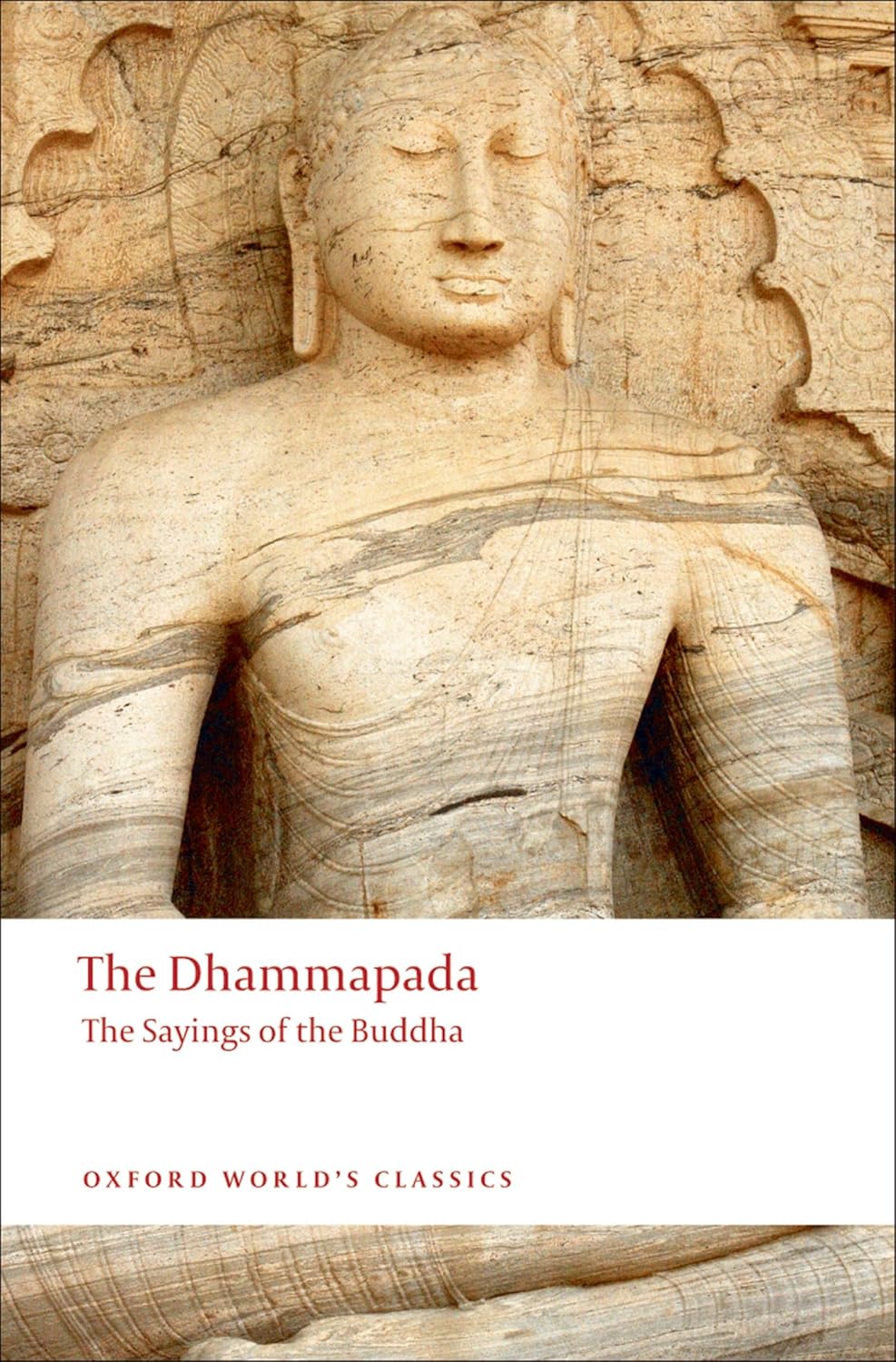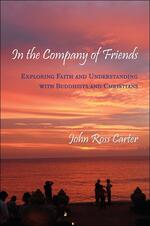Book Review: The Dhammapada
Discover timeless wisdom with The Dhammapada (Oxford World's Classics Edition). A clear, insightful translation on mindfulness, kindness, and peace.

(Oxford World's Classics Edition)
The Dhammapada is like a timeless self-help book, it’s been around for over 2,500 years and is a little more enlightened than most modern gurus. This edition, translated by the legendaries John Ross Carter and Mahinda Palihawadanahelp, is the perfect starting point for anyone looking to dip their toes into the deep waters of Buddhist wisdom—without getting bogged down in overly technical jargon. It’s wise, concise, and might just make you think twice the next time you’re about to say something unkind.

What’s it all About?
The Dhammapada is a collection of 423 short verses (that’s right, only 423! If only other self-help books could be this concise) that capture the Buddha’s teachings on everything from controlling your temper to why it’s a good idea to give up that last slice of pizza. Okay, maybe not the pizza part, but it does talk a lot about self-mastery, mindfulness, and the importance of being kind to yourself and others.
The book isn’t so much a technical manual as it is a spiritual guidebook that offers pithy wisdom in the form of bite-sized chunks. Think of it as the Buddha’s greatest hits album. The verses are like little life hacks for the soul, and no matter what stage of life you’re in, there’s a nugget of wisdom in here that’ll probably make you stop and say, “Hmm, maybe I should rethink my approach to that situation.”
The Buddha’s Translators
When it comes to translating ancient texts, the two authors are kind of like a spiritual GPS. They help you navigate the Buddhist terrain without getting lost in the weeds. This translation of the Dhammapada is clear, accessible, and, dare I say, almost charming (thanks also to the notes at the end that explain the most obscure passages). While it's respectful of the original Pali text, this book keeps things down-to-earth, which is especially helpful for newcomers who might be intimidated by the idea of reading a 2,500-year-old religious text.
There’s no heavy-duty academic jargon here—just straightforward wisdom. If you’re not sure who the Buddha is (maybe you’ve been living under a rock, or just a really peaceful rock), the intro will catch you up on everything you need to know. And while the book isn’t a comedy special, the ability to make ancient teachings feel fresh and easy to understand could easily make him the stand-up comedian of the ancient translation world.
Key Teachings (Or "Life Lessons You’ll Actually Want to Follow")
One of the central themes of the Dhammapada is that our minds are like unruly toddlers.
“We are what we think,” says the very first verse, and let’s face it, our minds can be all over the place.
One moment we’re feeling zen, the next we’re in a panic because we forgot to buy toothpaste. The Dhammapada teaches us that the way we think shapes our experience of the world, so if you’re constantly thinking negative thoughts, chances are you’re not going to see the world in the best light.
It’s kind of like your mind is a garden. If you plant seeds of kindness and mindfulness, you’ll grow a beautiful, peaceful life. If you plant weeds like anger and jealousy, well... good luck with that. In fact, Buddha’s pretty clear about that
—“You will not be punished for your anger; you will be punished by your anger.” (Pretty sure Buddha would’ve made a great therapist.)
The book also talks a lot about impermanence—basically, everything is temporary, so stop stressing about that one email you forgot to reply to last week. It’s all going to be okay!
Life’s ups and downs are just part of the ride, and clinging to things only leads to suffering. So, next time your favourite coffee shop is closed or you miss your favourite TV show, remember: "This too shall pass" (but maybe just grab a latte from somewhere else).
And, for the love of everything holy, let’s talk about kindness. The Buddha didn’t exactly have an Instagram account, but he was pretty clear about not getting involved in the negativity. One of the most famous verses from the Dhammapada is:
"Hatred does not cease by hatred, but only by love."
Sounds like the perfect advice to tweet at someone who’s having a meltdown over their parking ticket. In fact, the whole book is filled with reminders that we should respond to life's challenges with compassion and love—not with more negativity. It's like a spiritual version of “Don’t feed the trolls.”
Why This Edition Rocks (and Other Compliments)
The Oxford World’s Classics edition of the Dhammapada is everything you want in a spiritual guidebook: insightful, readable, and with just enough of a scholarly touch to make you feel like you’re learning something profound without needing a PhD in religious studies.
The two authors are like friends who explains things clearly, no need for multiple clarifications. Plus, the book’s structure makes it easy to dip in and out of it. Each chapter is devoted to a specific theme, so you can read a couple of verses whenever you need a little dose of calm or perspective.
Also, there's something almost... zen about the simplicity of it all. In today’s world of overcomplicated self-help books that seem to require a workbook and a 5-step action plan, the Dhammapada just tells it like it is. No frills, no gimmicks—just good, solid advice for living a better life.
Final Thoughts
The Dhammapada is like a mini spiritual retreat in book form. Whether you’re just looking for a little peace in a chaotic world, or you want to understand the deeper layers of Buddhist philosophy, this text will meet you where you are. And while it may not teach you how to avoid traffic jams or make your Wi-Fi faster, it will certainly help you navigate the more important parts of life—like how to respond when you spill coffee on your favourite shirt (hint: with compassion, for yourself and others).
In short, this book is a gem. The translation of John Ross Carter and Mahinda Palihawadan is straightforward and accessible, making ancient wisdom feel fresh and relevant today. So, if you’re in the market for a little wisdom that won’t overwhelm you, pick up this edition of the Dhammapada. It might just make you a little bit more mindful, a lot more kind, and maybe—just maybe—help you let go of that last slice of pizza.
Useful Links












